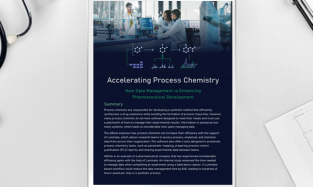Ensuring supplier and compounded drug quality
Posted: 14 December 2018 | European Pharmaceutical Review | No comments yet
It is paramount that manufacturers and their suppliers ensure that the quality of compounded drugs are high, by preventing risks of contamination…


As the complexity of pharmaceutical manufacturing continues to grow, management of these processes can become far more challenging than usual. With suppliers of pharmaceutical companies far, and often overseas, and many operations that were traditionally in-house, being outsourced, issues are more likely to occur.
Typical pharmaceutical companies often work with around 100-200 contract manufacturing organisations, with numerous studies indicating that supply and supplier issues account for 40% of the pharmaceutical industry’s top supply-chain risks.
The FDA has recently stated that they have been addressing insanitary conditions and manufacturing quality issues at compounders’ facilities across the country, with further activities planned. The FDA also looks to collaborate with the Department of Justice to prevent problems from occurring.
FDA Commissioner Dr Scott Gottlieb wrote in his statement that ‘although compounded drugs can serve an important role for certain patients whose medical needs cannot be met by an FDA-approved drug product, it’s important to understand that compounded drug products haven’t undergone FDA premarket review for safety and effectiveness.
‘Compounders who are uniquely permitted under law to compound and distribute certain compounded drugs without receiving patient-specific prescriptions are referred to as outsourcing facilities. There has been a lot of discussion around the issue of “office stock” – the drugs that doctors may keep on hand for certain procedures.
If certain conditions are met, the law allows outsourcing facilities to provide hospitals, physicians’ offices, and other health care facilities with supplies of compounded drugs to keep on hand as “office stock” for their patients, who may need quick or emergency medication upon diagnosis.’
Despite the practice being permitted, the FDA warns that outsourcing facilities must comply with certain requirements, including current good manufacturing practice (CGMP) requirements.
CGMP compliance is particularly important in outsourcing facilities, as they often operate on a larger scale than other compounders and their compounded drug products may reach many patients across the country.
Therefore it is paramount that products are not contaminated, contain the right amount of each component, and maintain quality while stored.
Related topics
Analytical techniques, Bioprocessing, Bioproduction, Contract Manufacturing, Drug Development, Manufacturing, Outsourcing, Regulation & Legislation, Research & Development (R&D)









